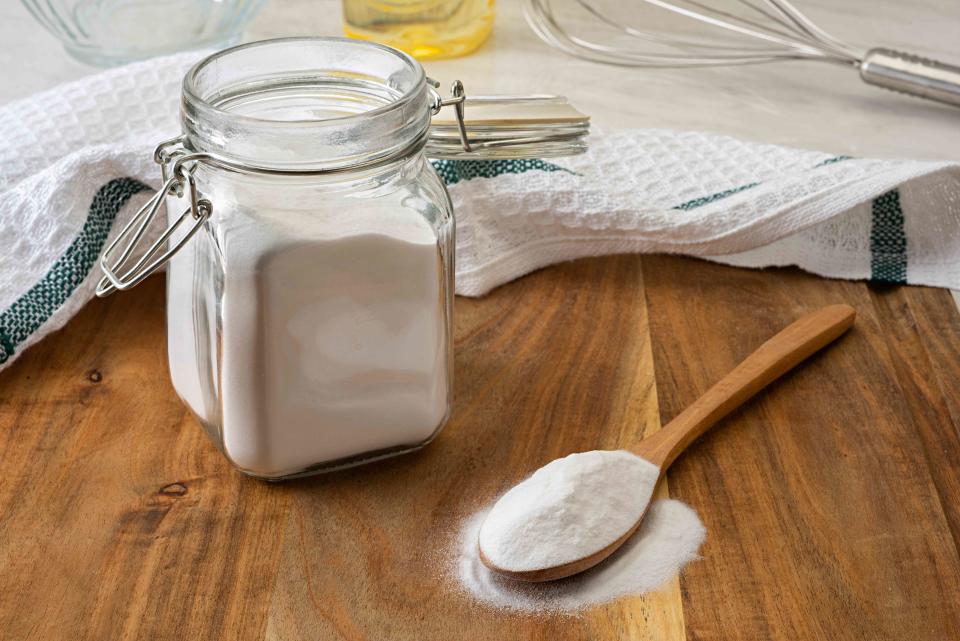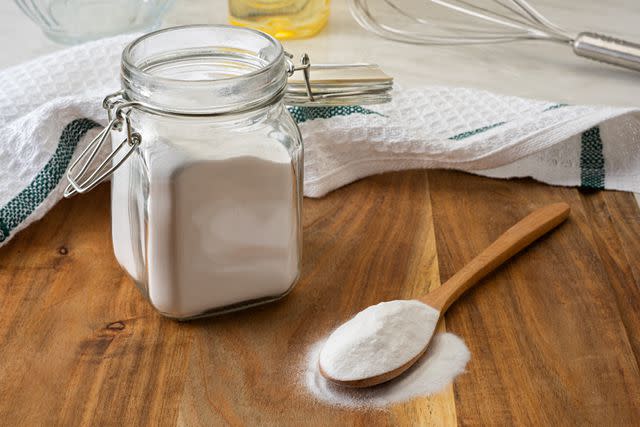6 Things You Should Never Clean with Baking Soda
It whitens, brightens, and refreshes, but don't use baking soda to clean these materials and surfaces.

Getty Images / BURCU ATALAY TANKUT
Baking soda is a ubiquitous cleaner and for good reason. The inexpensive household staple is readily available and incredibly versatile, used for everything from scrubbing coffee and tea stains from china to whitening sports uniforms in the wash.
But when it comes to cleaning, baking soda has its limits. Baking soda's mildly abrasive properties make it less than ideal for cleaning materials that are prone to scratching. Read on to find out a few surprising things that should never be cleaned with baking soda.

Getty Images / BURCU ATALAY TANKUT
1. Mirrors and Windows
Baking soda is a mild abrasive, which makes it excellent for gently scouring stains off of hard surfaces, but when it comes to cleaning scratch-prone materials like glass, baking soda should be avoided. Baking soda can leave micro-scratches on mirrors and windows, creating a dull appearance and causing irreversible damage.
Related: The Best Homemade Window Cleaner Can Be Created in Your Kitchen
2. Ceramic Glass Cooktops
Like mirrors and windows, when it comes to cleaning a ceramic glass cooktop, it's best to skip the use of baking soda to avoid scratching the surface. Instead, use a cream cleanser and/or a scraper to remove cooked-on residue in place of an abrasive powder.
3. Gold Plate
Gold plating on dishes, serving pieces, glassware, and more should be handled with care to avoid chipping, scratching, or erosion. Avoid scouring gold plating with baking soda, opting instead for gentle cleansers like dish soap, non-abrasive sponges, and microfiber cloths when it comes to washing these delicate items.
4. Aluminum
Baking soda is alkaline, and when aluminum is exposed to any type of alkali for a prolonged period of time, it can cause the metal to oxidize, changing the surface color. To avoid oxidizing the metal and its associated discoloration when using baking soda to scour an aluminum pot, rinse it immediately and thoroughly after washing to reduce exposure time.
5. Marble and Quartz
Baking soda's abrasive properties can cause damage over time to marble and quartz. Because baking soda can cause scratches and wear away the top protective layer of marble and quartz surfaces, skip it as an everyday cleaner and instead reach for a cream or liquid cleanser to avoid costly, permanent damage.
Related: How to Clean Marble
6. Wood Floors and Furniture
Baking soda will cause micro scratches on wood floors and furniture, wearing away the sealant and lending a dull appearance to the wood. Eroding the seal, in particular, is an issue because, in addition to leaving wood floors or furniture looking dull, it renders the wood vulnerable to costly damage, which can require expensive and time-consuming home repair work.
For more Better Homes & Gardens news, make sure to sign up for our newsletter!
Read the original article on Better Homes & Gardens.

